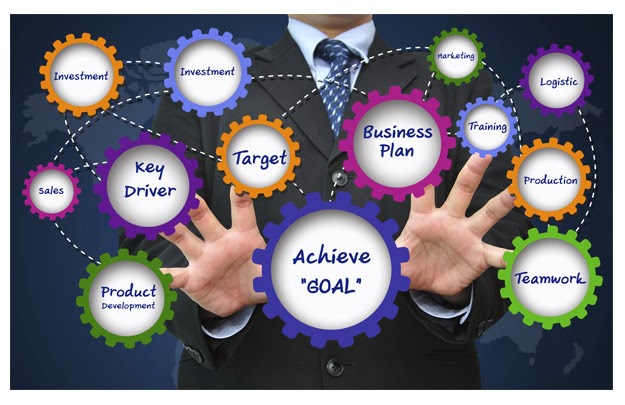Promotion strategies used by charlotte event companies to maximize attendance
Wiki Article
A Deep Dive Into How Event Management Functions to Produce Remarkable Experiences
Event management is an intricate self-control that integrates various aspects to craft unforgettable experiences. It needs a clear understanding of the event's objective and audience. Coordinators need to navigate budgeting, logistics, and marketing to assure a smooth implementation. Each element plays an essential duty in attaining the wanted influence. The trip does not end with the event itself. There are insights to reveal that can form future undertakings.The Basics of Event Management
Reliable event management encompasses a variety of essential principles that assist the planning and execution of successful occasions. At its core, it involves comprehending the event's function, target market, and wanted outcomes. Determining the target market is vital, as it informs choices connected to content, marketing, and logistics.Budgeting is one more basic element, ensuring that resources are alloted efficiently while fulfilling the event's purposes. This consists of planning for unforeseen expenses that might occur.
Time management plays an essential duty, as event managers should create a detailed timeline to work with various jobs and turning points.
Furthermore, efficient communication among stakeholders, suppliers, and group participants is crucial to assure placement and stay clear of misconceptions.
Threat management have to be considered, with backup plans in area to resolve possible difficulties, therefore improving the general experience for guests and guaranteeing a smooth implementation of the event.
Trick Duties in Event Planning
In event planning, recognizing crucial roles is essential for effective execution. The event planner is liable for looking after logistics and making certain all elements straighten with the vision. Furthermore, effective supplier management is essential for preserving top quality and cultivating strong collaborations throughout the preparation process.Event Planner Responsibilities
An occasion planner manages the complex aspects of event preparation, guaranteeing smooth implementation from conception to final thought. They are liable for conceptualizing the event style, establishing budget plans, and creating timelines to keep the job on course. Coordination with stakeholders, including customers, place managers, and volunteers, is necessary to line up expectations and help with interaction. The planner also supervises logistics, such as wedding catering, transportation, and innovation requires, ensuring all elements work harmoniously. They carry out website visits, handle schedules, and troubleshoot problems that may occur during the event. Post-event, the organizer examines the event's success, gathering comments and evaluating results to notify future tasks. This diverse role calls for solid business abilities, focus to information, and reliable social interaction.Supplier Management Fundamentals
Steering through the landscape of vendor management is crucial for effective event preparation. Reliable supplier management entails recognizing, picking, and working with suppliers who offer essential services, such as event catering, audiovisual assistance, and decoration. Event planners need to preserve strong interaction with vendors to guarantee that all facets align with the event's vision. Trick functions include the vendor supervisor, that supervises contracts and arrangements, and the logistics planner, liable for on-site configuration and execution. It's vital to establish clear assumptions and timelines, promoting a collective environment that enhances the overall experience. By prioritizing these components, event coordinators can browse prospective obstacles, guaranteeing that every detail adds to a smooth and memorable event.Crafting a Vision: Principle Development

Once a vision is established, it comes to be important to equate it into workable parts. This includes defining the atmosphere, choosing ideal venues, and identifying the event's design. Teaming up with stakeholders, consisting of enrollers and companions, further refines the idea, making certain that all parties share a merged understanding of the event's function. Eventually, a well-developed vision not only improves participant engagement yet additionally sets the stage for unforgettable experiences that reverberate long after the event wraps up.
Budgeting and Resource Allocation
With a clear vision in place, the next step in event management entails mindful budgeting and source allotment. This critical stage warranties that all essential elements are funded and aligned with the event's purposes. Event managers start by approximating prices connected with venue choice, event catering, enjoyment, and advertising and marketing. They create an in-depth spending plan that describes each category, permitting transparency and responsibility.Source allotment extends past funds; it also incorporates human resources. Identifying team roles, obligations, and timelines is vital to guarantee efficiency. Event managers have to likewise consider backups for unexpected costs or changes in scope, developing a buffer within the spending plan.
Moreover, prioritizing spending on aspects that improve visitor experiences is vital. By strategically allocating sources, event managers make the most of influence while preserving economic control. This regimented method not just promotes successful events however likewise builds credibility and depend on with stakeholders and participants.
Logistics: The Backbone of Event Execution
While budgeting prepares for an event, logistics function as its foundation, ensuring that every element is implemented smoothly and successfully. charlotte event companies. This includes a wide variety of tasks, including location option, transport plans, and devices purchase. Reliable logistics management requires precise planning and sychronisation to assure that all elements align with the event's timeline and goalsKey elements of logistics include supply management, where products and materials are tracked to stop shortages, and staffing, which involves recruiting and training personnel to deal with various jobs. Communication is also crucial, as it promotes collaboration amongst suppliers, sponsors, and the event team.

Advertising And Marketing and Promo Techniques
Efficient advertising and promotion methods are necessary for maximizing attendance and engagement at an event, as they generate rate of interest and enjoyment among potential participants. Event supervisors use a mix of typical and electronic advertising methods to reach their target market. Social media site systems, e-mail campaigns, and targeted ads are commonly made use of to develop buzz and foster neighborhood interaction. Collaborations with influencers or industry leaders can boost reputation, while involving web content such as video clips and testimonies can reverberate with prospective guests.Furthermore, leveraging event-specific hashtags and producing shareable graphics encourages natural promotion amongst participants. Early riser ticket deals and unique promotions can incentivize enrollment, in addition increasing passion. A properly designed site that offers very easy navigation and clear information regarding the event can boost the user experience. By executing these marketing and promotion methods, event managers can assure higher visibility and ultimately develop an unforgettable experience for all participants.

Gauging Success: Comments and Assessment
Success in event management depends upon robust comments and evaluation devices. These processes are crucial for figuring out the effectiveness web of an event and identifying locations for improvement. By gathering input from participants, organizers can analyze complete satisfaction degrees, understand choices, and gauge general effect. Surveys and interviews offer as valuable tools for accumulating quantitative and qualitative data, enabling extensive evaluation.Additionally, examining vital efficiency indicators (KPIs) such as participation prices, involvement levels, and return on investment (ROI) gives a clearer image of event success. Post-event debriefing sessions with the planning group additionally contribute insights, promoting a society of continual improvement.
Ultimately, a methodical strategy to responses and assessment not only improves future occasions yet additionally reinforces relationships with stakeholders. By executing these methods, event managers can develop memorable experiences that reverberate with participants and drive continuous involvement.
Often Asked Questions
Just How Do Event Supervisors Manage Unexpected Difficulties During an Occasion?
Event managers address unexpected difficulties by continuing to be calmness, reviewing the circumstance, and carrying out backup strategies - charlotte event companies. They connect properly with their group, adjust rapidly, and focus on remedies to assure the event proceeds efficiently and effectivelyWhat Innovation Tools Are Necessary for Modern Event Management?
Important modern technology tools for contemporary event management include event registration software program, job management applications, attendee engagement systems, and analytics devices. These resources improve processes, boost interaction, and improve overall event experiences for coordinators and participants alike.Just How Do Social Differences Influence Event Planning and Execution?
Social differences greatly affect event planning and implementation. They impact themes, personalizeds, communication styles, and assumptions, requiring description customized methods to guarantee inclusivity and regard, inevitably forming the general experience and success of the event.What Are the Ethical Considerations in Event Management?
Ethical factors to consider in event management encompass transparency, sustainability, social sensitivity, and inclusivity. Organizers need to prioritize justness, regard diverse target markets, reduce ecological impact, and warranty ease of access to develop responsible and remarkable experiences for all individuals.Exactly How Can Sustainability Be Integrated Into Event Planning?
Sustainability can be incorporated right into event planning by utilizing eco-friendly products, reducing waste, sourcing local suppliers, applying carbon balanced out programs, and promoting electronic services to minimize paper use, thereby boosting environmental awareness within the event's structure.Report this wiki page